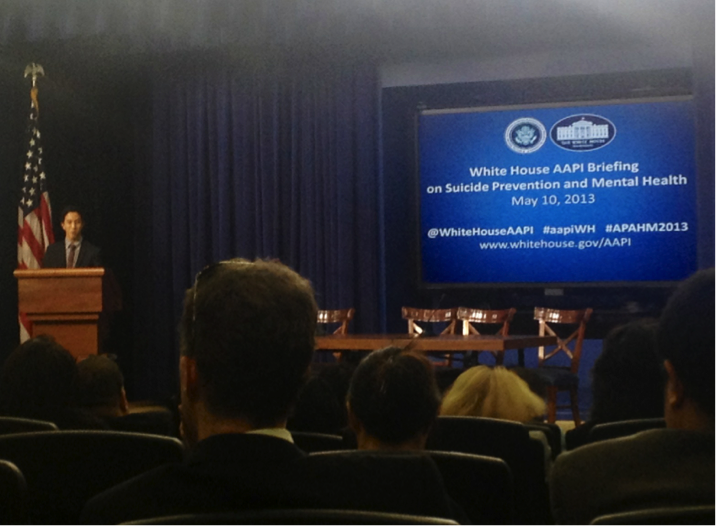
The White House Initiative on Asian Americans and Pacific Islanders and the White House Office of Public Engagement hosted a briefing today on mental health issues and suicide prevention for the Asian American and Pacific Islander (AAPI) community. As May is both AAPI Heritage Month and National Mental Health Awareness Month, it was a timely occasion to bring these issues to the forefront. The event convened government officials, community leaders, students and health care advocates for a discussion about the Obama Administration’s efforts to prevent suicide and address mental health issues within the AAPI community.
Mental health concerns are not prominently or routinely addressed in AAPI communities, however, these issues are primary contributors to overall health and well-being. National studies show that the prevalence rates for mental health conditions are generally the same or slightly less for AAPIs compared to the general population. However, the burden of mental health conditions for AAPI families and communities is often greater due to limited access and engagement in mental health services, lower rates of treatment and poorer quality care leading to worse outcomes. AAPI families are often reluctant to seek care due to the stigma and discrimination associated with mental health conditions, difficulties in finding appropriate services and lack of understanding of both the mental health condition and the complex service system. Higher rates of uninsurance also impede attempts to access mental health treatment.
The briefing also highlighted AAPI-serving community mental health programs, suicide prevention initiatives such as the National Suicide Prevention Lifeline and the National Strategy for Suicide Prevention and government resources. Also featured was the California Reducing Disparities Project Asian Pacific Islander report “In Our Own Words,” which outlined effective strategies for reducing AAPI behavioral health disparities and provided specific program examples.
During this month of celebration of the AAPI community, this event was a fitting opportunity to recognize and re-dedicate ourselves to the ongoing work to increase awareness of mental health, address disparities and improve the wellbeing of AAPIs across the nation. Please visit the Office of Behavioral Health Equity and Substance Abuse and Mental Health Services Administration (SAMHSA) website to learn more about mental health and substance use among AAPIs, and to access a new data spotlight on AAPIs and suicide.
Larke N. Huang, Ph.D. is the Director of the Office of Behavioral Health Equity at the Substance Abuse and Mental Health Services Administration, U.S. Department of Health and Human Services


